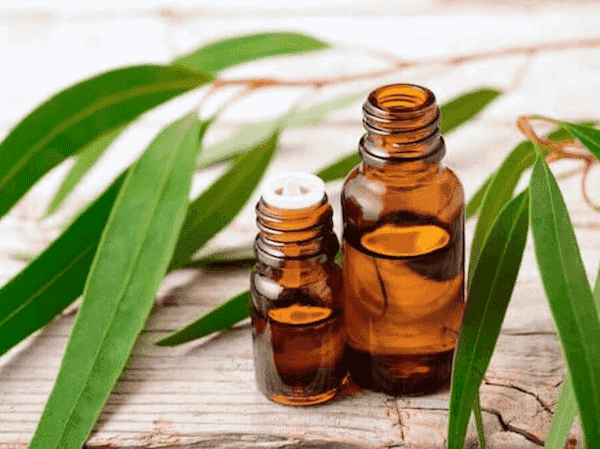Harnessing the Power of Eucalyptus Oil: A Comprehensive Guide to Home-Made Natural Remedies
Eucalyptus oil, a potent and aromatic essential oil, has been revered for centuries as a natural remedy for various ailments. This powerful elixir, derived from the leaves of the eucalyptus tree, boasts a wide array of therapeutic properties that make it a staple in many households. From respiratory relief to pain management, eucalyptus oil offers a natural alternative to synthetic products, making it an invaluable addition to your wellness arsenal.
Eucalyptus oil can be used in numerous ways, from aromatherapy to topical applications, and even as an eco-friendly cleaning solution. Its fresh, invigorating scent not only purifies the air but also uplifts your mood, creating a harmonious environment in your home.
Here you’ll learn about the benefits of eucalyptus oil, uncover its composition and properties, and provide you with practical tips on how to harness its power for your health and well-being. Whether you're a seasoned user or a curious beginner, this information will equip you with the knowledge to make the most of this natural wonder.
The Eucalyptus Tree: A Sustainable Source of Essential Oil
The eucalyptus tree, native to Australia, has become a global phenomenon due to its rapid growth and adaptability to various climates. These majestic trees, with their distinctive blue-green leaves and peeling bark, are not only a sight to behold but also a sustainable source of essential oil. Eucalyptus species, particularly Eucalyptus globulus, are cultivated worldwide for their oil-rich leaves.
One of the most remarkable aspects of eucalyptus trees is their sustainability. These fast-growing giants can reach heights of up to 300 feet in just a few decades, making them an excellent renewable resource. Their ability to regenerate quickly after harvesting ensures a constant supply of leaves for oil production without depleting natural forests.
Eucalyptus trees also play a crucial role in environmental conservation. They help prevent soil erosion, provide habitat for wildlife, and act as carbon sinks, absorbing significant amounts of carbon dioxide from the atmosphere. By choosing eucalyptus oil, you're not only benefiting from its therapeutic properties but also supporting sustainable forestry practices.
Eucalyptus Oil Composition and Properties
Eucalyptus oil is a complex mixture of organic compounds, with its primary active ingredient being 1,8-cineole, also known as eucalyptol. This powerful compound is responsible for many of the oil's therapeutic effects, including its ability to clear airways and reduce inflammation. The oil also contains other beneficial components such as α-pinene, β-pinene, and limonene, which contribute to its antimicrobial and analgesic properties.

The unique composition of eucalyptus oil gives it a range of notable properties:
- Expectorant: Helps loosen and expel mucus from the respiratory tract
- Decongestant: Reduces swelling in nasal passages and sinuses
- Antimicrobial: Fights against bacteria, viruses, and fungi
- Anti-inflammatory: Reduces inflammation and associated pain
- Analgesic: Provides pain relief when applied topically
- Insect repellent: Deters various insects, including mosquitoes and ticks
These properties make eucalyptus oil a versatile remedy for a wide range of ailments, from respiratory issues to muscle pain. Understanding its composition allows you to appreciate the science behind its effectiveness and use it more effectively in your natural health regimen.
Health Benefits of Eucalyptus Oil: From Respiratory Relief to Pain Management
Eucalyptus oil's diverse range of health benefits makes it a valuable addition to your natural medicine cabinet. Its most well-known application is in respiratory health, where it excels in providing relief from congestion, coughs, and sinus issues. When inhaled, the oil's expectorant properties help break down mucus, while its anti-inflammatory effects reduce swelling in the nasal passages, making breathing easier.
Beyond respiratory health, eucalyptus oil offers significant benefits for pain management. Its analgesic and anti-inflammatory properties make it an excellent choice for alleviating muscle and joint pain. When diluted and applied topically, the oil can help soothe sore muscles, reduce inflammation from arthritis, and even provide relief from headaches.
Here's a quick overview of some key health benefits of eucalyptus oil:
- Benefit: Respiratory relief – How? Inhalation, steam therapy
- Benefit: Pain management – How? Topical application (diluted)
- Benefit: Immune system boost – How? Aromatherapy, topical application
- Benefit: Stress reduction – How? Aromatherapy, massage
- Benefit: Wound healing – How? Topical application (diluted)
It is important to remember to dilute eucalyptus oil properly before topical use and consult with a healthcare professional before using it to treat any medical conditions.
Harnessing Eucalyptus Oil's Antimicrobial Powers
One of the most impressive attributes of eucalyptus oil is its potent antimicrobial activity. This essential oil has been shown to be effective against a wide range of pathogens, including bacteria, viruses, and fungi. Its antimicrobial properties stem from its high content of eucalyptol, which disrupts the cell membranes of harmful microorganisms.
You can harness these antimicrobial powers in a multitude of ways:
- Air purification: Diffusing eucalyptus oil can help cleanse the air of harmful microbes, potentially reducing the spread of airborne illnesses.
- Surface cleaning: Adding a few drops of eucalyptus oil to your cleaning solutions can enhance their germ-fighting abilities.
- Personal hygiene: Incorporating diluted eucalyptus oil into your skincare routine may help combat acne-causing bacteria.
When using eucalyptus oil for its antimicrobial benefits, it's important to remember that while it's effective against many pathogens, it should not replace proper hygiene practices or medical treatments when necessary. Instead, consider it a complementary tool in your overall health and wellness strategy.
Natural Insect Repellent: Keeping Bugs away with Eucalyptus
In addition to its health benefits, eucalyptus oil serves as an excellent natural insect repellent. Its strong scent is off-putting to many insects, including mosquitoes, flies, and ticks. This makes it a safer alternative to chemical-based repellents, especially for those with sensitive skin or concerns about synthetic ingredients.
To create your own eucalyptus-based insect repellent:
1. Mix 10-15 drops of eucalyptus oil with 2 ounces of a carrier oil (such as coconut or jojoba oil)
2. Pour the mixture into a spray bottle
3. Shake well before each use and apply to exposed skin
For added protection, you can also add a few drops of eucalyptus oil to outdoor candles or diffusers when spending time outside. This can help create a bug-free zone in your immediate surroundings.
While eucalyptus oil is generally safe for topical use when properly diluted, it's always wise to perform a patch test before applying it to larger areas of skin. If you experience any irritation, discontinue use immediately.
Using Eucalyptus Oil for Mental Clarity and Relaxation
Beyond its physical health benefits, eucalyptus oil can also have a positive impact on your mental well-being. The fresh, invigorating scent of eucalyptus is known to promote mental clarity and focus, making it an excellent choice for aromatherapy during work or study sessions. Its stimulating properties can help combat mental fatigue and improve concentration.
At the same time, eucalyptus oil can also promote relaxation and stress relief. Its calming effects on the nervous system can help reduce anxiety and promote a sense of well-being. This dual action of stimulation and relaxation makes eucalyptus oil a versatile tool for managing your mental state throughout the day.
To incorporate eucalyptus oil into your mental wellness routine:
1. Add a few drops to a diffuser in your workspace to enhance focus and productivity
2. Include it in a relaxing bath blend to unwind after a stressful day
3. Use it in a massage oil to relieve tension and promote relaxation
4. Create a calming pillow spray to improve sleep quality
Remember that individual responses to essential oils can vary, so pay attention to how you react and adjust your usage accordingly.
DIY Guide: Making Your Own Eucalyptus Oil at Home
While high-quality eucalyptus oil is readily available commercially, making your own can be a rewarding and cost-effective endeavor. Here's a step-by-step guide to creating your own eucalyptus oil at home:
Gather materials:
- Fresh eucalyptus leaves (preferably from Eucalyptus globulus)
- Carrier oil (such as olive or coconut oil)
- Glass jar with a tight-fitting lid
- Cheesecloth or fine strainer
Prepare the leaves:
- Wash the eucalyptus leaves thoroughly
- Pat them dry and crush them slightly to release the oils
Infuse the oil:
- Place the crushed leaves in the glass jar
- Cover completely with your chosen carrier oil
- Seal the jar tightly
Allow to infuse:
- Store the jar in a cool, dark place for 2-4 weeks
- Shake the jar gently every few days to distribute the oils
Strain and store:
- After the infusion period, strain the oil through cheesecloth
- Store the finished oil in a dark glass bottle away from direct sunlight
While this method produces a milder oil compared to commercial steam-distilled versions, it's a great way to create your own natural eucalyptus-infused oil for personal use.
Safe Usage and Application Methods for Eucalyptus Oil
1. Dilution: Always dilute eucalyptus oil with a carrier oil before applying to the skin. A general rule is 3-5 drops of essential oil per teaspoon of carrier oil.
2. Patch test: Before using eucalyptus oil on larger areas, perform a patch test on a small area of skin to check for any adverse reactions.
3. Inhalation: Use eucalyptus oil in a diffuser or add a few drops to hot water for steam inhalation. Avoid direct inhalation from the bottle.
4. Oral use: Do not ingest eucalyptus oil unless under the guidance of a qualified healthcare professional.
5. Storage: Keep eucalyptus oil in a cool, dark place, out of reach of children and pets.
6. Pregnancy and medical conditions: Consult with a healthcare provider before using eucalyptus oil if you're pregnant, nursing, or have any medical conditions.
By following these safety guidelines, you can enjoy the benefits of eucalyptus oil while minimizing any potential risks.
Aromatherapy and Topical Applications: Maximizing Eucalyptus Oil Benefits
To fully harness the power of eucalyptus oil, it's essential to understand the various methods of application. Aromatherapy and topical use are two of the most common and effective ways to benefit from this versatile oil.
Aromatherapy applications:
- Use a diffuser to disperse eucalyptus oil into the air
- Add a few drops to a bowl of hot water and inhale the steam
- Create a room spray by mixing eucalyptus oil with water in a spray bottle
- Place a drop or two on a tissue and inhale periodically throughout the day
- Topical applications (always dilute with a carrier oil):
- Massage diluted oil into sore muscles or joints
- Apply to the chest and throat area for respiratory relief
- Use as part of a natural skincare routine for its antimicrobial properties
- Add to bathwater for a relaxing and therapeutic soak
Remember that the effectiveness of eucalyptus oil can vary depending on the quality of the oil and the method of application. Experiment with different techniques to find what works best for you.
Eco-Friendly Cleaning with Eucalyptus Oil
Eucalyptus oil's antimicrobial properties make it an excellent addition to your eco-friendly cleaning arsenal. By incorporating this natural disinfectant into your cleaning routine, you can reduce your reliance on harsh chemical cleaners while still maintaining a hygienic home environment.
Here are some ways to use eucalyptus oil for cleaning:
- All-purpose cleaner: Mix 10 drops of eucalyptus oil with 1 cup of water and 1 cup of white vinegar in a spray bottle.
- Floor cleaner: Add 15-20 drops of eucalyptus oil to your mop water for a fresh-smelling, disinfecting clean.
- Laundry boost: Add a few drops to your washing machine for fresher, cleaner-smelling clothes.
- Air freshener: Combine eucalyptus oil with water in a spray bottle for a natural room deodorizer.
- Mold prevention: Use diluted eucalyptus oil to clean bathroom surfaces and prevent mold growth.
By using eucalyptus oil in your cleaning routine, you're not only benefiting from its cleaning power but also reducing your environmental impact by avoiding harsh chemicals.
Incorporating Eucalyptus Oil in DIY Skincare Routines
Eucalyptus oil's antimicrobial and anti-inflammatory properties make it a valuable ingredient in natural skincare routines. When used properly, it can help combat acne, soothe irritated skin, and promote overall skin health. Here are some ways to incorporate eucalyptus oil into your DIY skincare regimen:
1. Acne spot treatment: Mix 1 drop of eucalyptus oil with 1 teaspoon of witch hazel and apply to blemishes with a cotton swab.
2. Soothing face mask: Add 2 drops of eucalyptus oil to 1 tablespoon of raw honey for a calming and clarifying mask.
3. Refreshing toner: Combine 5 drops of eucalyptus oil with 1/4 cup of rose water for a cooling and cleansing toner.
4. Foot soak: Add 5-10 drops of eucalyptus oil to a basin of warm water for a refreshing and deodorizing foot bath.
5. Scalp treatment: Mix 2-3 drops of eucalyptus oil with 1 tablespoon of coconut oil for a soothing scalp massage.
Always perform a patch test before using new skincare products and discontinue use if any irritation occurs. Remember that eucalyptus oil is potent, so a little goes a long way in skincare applications.
Eucalyptus Globulus: The Best Tree for Oil Production
While there are over 700 species of eucalyptus trees, Eucalyptus globulus, commonly known as Blue Gum, is the most widely used for essential oil production. This species is prized for its high cineole content, which can range from 60% to 85% of the oil's composition.

Eucalyptus globulus is native to Tasmania and southeastern Australia but is now cultivated worldwide for its oil. The tree's rapid growth rate and adaptability to various climates have made it a popular choice for commercial plantations. Some key characteristics of Eucalyptus globulus include:
- Height: Can grow up to 300 feet tall in ideal conditions
- Leaves: Long, narrow, and blue-green in color
- Bark: Smooth and peels off in long strips
- Flowers: Large, white, and solitary
- Growth rate: Extremely fast, capable of growing several feet per year
The oil extracted from Eucalyptus globulus leaves is considered the gold standard for medicinal and therapeutic use due to its high eucalyptol content. When purchasing eucalyptus oil, look for products specifically derived from Eucalyptus globulus for the most potent and effective results.
Sustainability and Renewability: Eucalyptus as a Biofuel Source
Beyond its medicinal and household uses, eucalyptus has gained attention as a sustainable source of biofuel. The fast-growing nature of eucalyptus trees, combined with their ability to thrive in various climates, makes them an attractive option for renewable energy production.
Eucalyptus-based biofuels offer several advantages:
1. Rapid growth: Eucalyptus trees can be harvested every 3-5 years, providing a consistent and renewable source of biomass.
2. High energy content: Eucalyptus wood has a high calorific value, making it efficient for energy production.
3. Carbon neutrality: When managed sustainably, eucalyptus plantations can be carbon neutral or even carbon negative.
4. Versatility: Eucalyptus can be used to produce various types of biofuels, including ethanol and biodiesel.
5. Land use efficiency: Eucalyptus trees can be grown on marginal lands not suitable for food crops, reducing competition with agriculture.
While the use of eucalyptus for biofuel production shows promise, it's important to balance this with sustainable forestry practices and consideration for local ecosystems. Proper management of eucalyptus plantations is crucial to maximize their benefits while minimizing potential environmental impacts.
The Art of Steam Distillation: Extracting Pure Eucalyptus Oil
Steam distillation is the most common method for extracting pure eucalyptus oil from the leaves and small branches of the tree. This process preserves the oil's therapeutic properties while ensuring its purity. Here's an overview of the steam distillation process:
1. Harvesting: Fresh eucalyptus leaves and small branches are harvested, typically early in the morning when oil content is highest.
2. Preparation: The plant material is chopped or crushed to increase surface area for better oil extraction.
3. Distillation: The prepared plant material is placed in a still and steam is passed through it. The heat causes the oil glands to burst, releasing the essential oil.
4. Condensation: The steam, now carrying vaporized essential oil, passes through a cooling system where it condenses back into liquid form.
5. Separation: The condensed liquid contains both water and oil. Due to differences in density, the oil floats on top of the water and can be easily separated.
6. Filtration: The separated oil is filtered to remove any impurities.
7. Storage: The pure eucalyptus oil is stored in dark glass bottles to protect it from light and maintain its quality.
This meticulous process ensures that the resulting eucalyptus oil retains its full spectrum of beneficial compounds, making it ideal for therapeutic use.
Holistic Health: Integrating Eucalyptus Oil into Your Wellness Routine
Incorporating eucalyptus oil into your daily wellness routine can contribute to a more holistic approach to health. By addressing both physical and mental well-being, eucalyptus oil can become a valuable tool in your journey towards overall wellness. Here are some ways to integrate eucalyptus oil into your daily life:
1. Morning energizer: Start your day by adding a few drops of eucalyptus oil to your shower or diffusing it while you get ready.
2. Workout support: Use a diluted eucalyptus oil blend for a pre-workout massage to warm up muscles or post-workout to soothe soreness.
3. Midday focus booster: Inhale eucalyptus oil from a tissue or use a personal inhaler during your afternoon slump to improve concentration.
4. Evening relaxation: Add eucalyptus oil to a diffuser or bath to unwind and clear your mind before bed.
5. Seasonal wellness: Use eucalyptus oil in steam inhalation or chest rubs during cold and flu season to support respiratory health.
By incorporating eucalyptus oil into various aspects of your daily routine, you can harness its diverse benefits and support your overall well-being in a natural, holistic manner.
Life, Love, Living
Eucalyptus Oil
A Natural Remedy for Everyday Health
Eucalyptus oil, a natural remedy you can make at home, offers relief for respiratory issues, pain, and stress, while its antimicrobial and insect-repellent properties make it a versatile solution for daily health needs.
More oils
Embracing the Therapeutic Power of Eucalyptus Oil
As you have now learned, eucalyptus oil is a versatile and powerful natural remedy with a wide range of applications. From respiratory relief and pain management to mental clarity and eco-friendly cleaning, this essential oil offers numerous benefits for your health, home, and overall well-being.
By understanding the properties and safe usage of eucalyptus oil, you can confidently incorporate it into your daily life, whether through aromatherapy, topical applications, or DIY remedies. Remember to always use high-quality, pure eucalyptus oil and follow proper dilution guidelines to ensure safe and effective use.
Start by experimenting with different applications to find what works best for you. Whether you're seeking natural alternatives to conventional products or looking to enhance your existing wellness routine, eucalyptus oil has something to offer.
Be sure to purchase a high-quality, organic eucalyptus oil from a reputable source. Embracing the power of eucalyptus oil is more than just adopting a new product; it's about connecting with nature's wisdom and taking an active role in your health and wellness.



